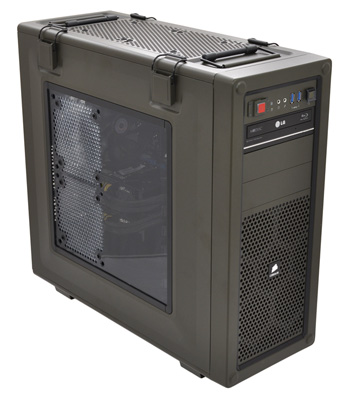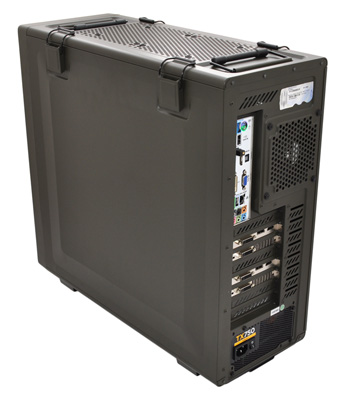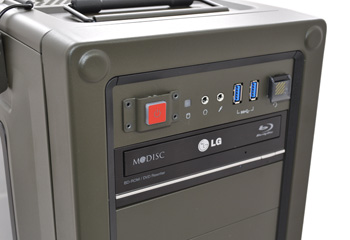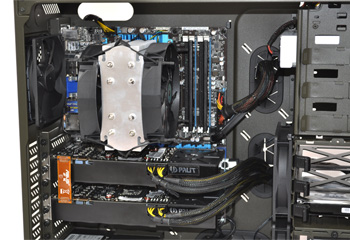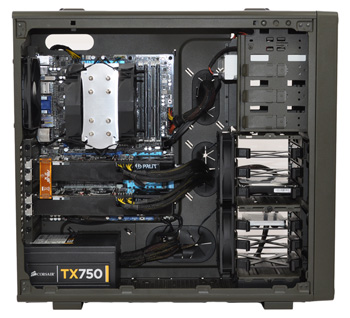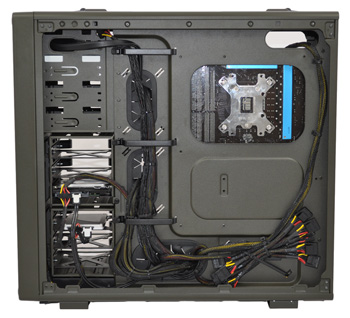Introduction
Have a hard time waiting for the next big hardware launch? Imagine how system integrators feel; their entire existence depends on constant innovation from big names such as Intel, AMD and NVIDIA.
What's interesting, though, is to see and hear which components have been earmarked as the real enablers. Intel's third-generation Core processor family was an obvious fixture on the 2012 calendar, as is the upcoming arrival of Microsoft's Windows 8 operating system. But from our conversations with various system integrators, the most eagerly-anticipated component for gaming rigs appears to have been NVIDIA's GeForce GTX 660 Ti.
The hope is that this mid-to-high-end card is the one that will enable affordable, high-performance gaming machines to be sold in volume. It's the card that many system integrators have been waiting for, and we've already seen it put to good use in Scan's 3XS Z77 Performance Q10; a system that offers excellent 1080p performance coupled with ultra-quiet operation.
That's one way to do it, but Chillblast's taking a different approach. For £1,399 (roughly £150 more than the Scan machine), it's offering the Fusion Voodoo SLI; a machine that touts not one, but two GeForce GTX 660 Ti graphics cards.
Straight away, you can tell that this one's put together with a different mentality. Whereas Scan's Performance Q10 is designed to be quiet, subtle and sleek, Chillblast's Fusion Voodoo SLI is the exact opposite; it looks ostentatious, loud and, well, like a traditional gaming rig.
Dressed in Corsair Vengeance C70, the Fusion Voodoo SLI might not be the most polished addition to a home office, but it certainly has a LAN-party appeal about it, and we can see why Corsair's chassis will catch on with many integrators; it's easy to build into, it looks like a gaming chassis, and it comes in a choice of military green, gunmetal black or arctic white. Chillblast does allow customers to choose any of the three.
Build quality is good throughout - though a few fingerprints were visible on the chassis in the right light - and Chillblast's standard component selection is well-rounded and suitably high-end.
Of course, a vast array of configuration options are available, but there's no great need to stray away from the default setup. In the £1,399 configuration, Chillblast has an ASUS P8Z77-V motherboard as the foundation, upon which sits an Intel Core i5-3570K processor and 16GB of Corsair Vengeance LP memory. The latter is double the amount we're used to seeing in rival systems, and though the usefulness of 16GB of memory while gaming is questionable, it certainly can't do any harm.
As you'd expect, Chillblast has seen fit to overclock the Intel CPU to a screaming 4.7GHz, despite Ivy Bridge having a reputation for running hot under the collar. The overclock is applied by adding a little extra voltage and upping the multiplier to 47 across all four available cores. It's a setup that's going to need more than the basic Intel reference cooler to keep temperatures in check, so Chillblast employs a dual-fan Xigmatek Prime SD1484.
A factory overclocked CPU is always appreciated by the target audience, but a Core i5-3570K is standard fare for a gaming PC at this price point. Chillblast hopes to set itself apart in the GPU department, where it employs two Palit GeForce GTX 660 Ti graphics cards in SLI.
Both cards are stock-clocked at 915MHz on core and bring along a 2GB frame buffer clocked at an effective 6,008MHz. We know that a single card is adept at handling the latest full-HD games with large amounts of image quality, but using two cards in tandem always raises a few eyebrows. Having two 660 Tis running side by side leaves you heavily reliant on NVIDIA's drivers - optimum SLI scaling performance isn't always guaranteed - and it takes away some flexibility when it comes to upgrades further down the round.
It's personal preference, of course, but if you aren't going to be gaming at resolutions much beyond 1,920x1,080, we'd be tempted to swap the two GeForce GTX 660 Tis for a single GeForce GTX 670 or GTX 680, saving up to £200 in the process.
Still, Chillblast understands that one size won't fit all - it has the configuration options to prove it - and it has a good knowledge of what the modern gamer wants. Ample power is supplied by a 750 Watt Corsair TX-Series PSU (though it sadly isn't the modular 'M' unit), an LG optical drive provides both Blu-ray playback and DVD-writing capabilities, and the default storage solution is twofold. A 120GB Intel 330 Series SSD acts as a super-fast system disk and a 1TB Seagate hard-disk is on hand to provide extra capacity when needed.
The Vengeance C70's cable-management facilities have been put to good use - the build is nice and tidy - but we're surprised to find that Chillblast's engineers haven't opted to change the layout of the front intake fans. In an earlier review of the chassis, we found that the case worked best with the two intakes positioned in front of the drive cage. Corsair concurred, but Chillblast seems happy enough with the fans left as is; we'll find out how this impacts temperature a little later in the review.
Overall, build quality is good, component selection is well-rounded, a clean install of Windows 7 Home Premium is in place with all the latest driver updates, and the system as a whole should deliver copious amounts of gaming performance. Why not build the same PC yourself is a common question, and the best answer to that is the manufacturer's warranty. Overclocking your own PC can be a risk, but Chillblast backs the Fusion Voodoo SLI with a solid two-year collect-and-return warranty, as well as a lifetime local rate telephone support number.
Let's fire her up and see how she fares, shall we?






